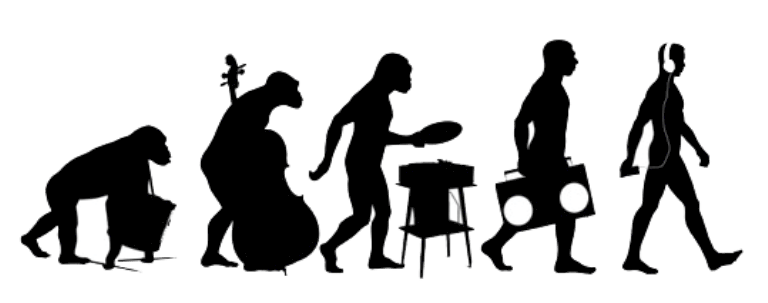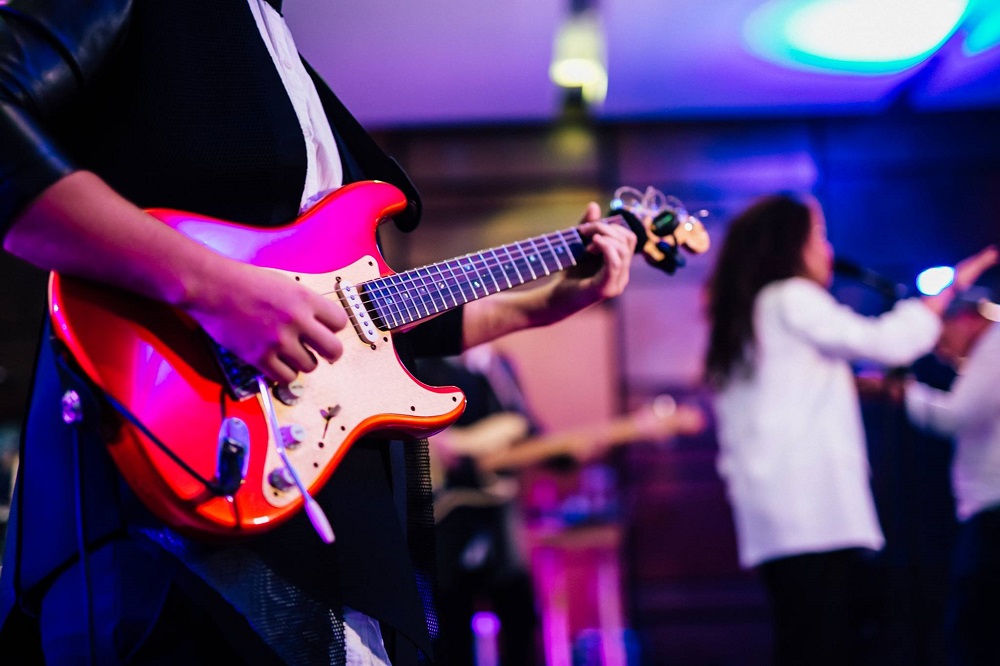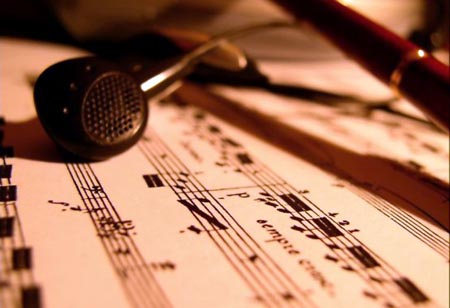What’s happening?
I have been paying attention to the topic of music consumption culture for a long time. There were times when getting into a minibus without your headphones was dangerous for a music lover. And not that the drivers wanted to annoy the passengers, they simply created comfort for themselves. However, just like some young people, having a lot of records at hand, he creates “his” favorite atmosphere using speakers. And all of them naturally willingly share this atmosphere with everyone around. Whether they want it or not, it doesn’t matter. All this, and especially what I heard, formed my impression of the tastes of the majority and their attitude to music.

It wasn’t like that before. If we rewind time a little back, we will see that playing records on patifons and gromophones, music was used for dancing at parties or at solemn events, etc. Then she was more appreciated, she was less accessible. She was treated like a delicacy. Naturally then there were more live performances. We all understand that any recording is made from a live game. And that a live game – music, appeared long before the advent of sound recording. Even long before they learned how to fix it in notes. This is a very ancient phenomenon. By age, I think music can be safely compared with speech. And the live performance of music is as old a process as telling stories or fairy tales.
Watching the interaction of the listener with the music, I realized that we are losing depth. Devaluing the meaning of music, we lazily choose what is simpler. Moreover, I noticed that this is a global problem. We are moving away from live interaction to artificial communication. Yes, we can say that despite the appearance of books, films, television, the Internet, social networks, we still talk to each other live. Also, despite the appearance of records, cassettes, discs, the famous mp3, electronic music, live music still exists. And they still listen to her. And that there is no visible problem to sound the alarm. But we are not comparing fundamentally different things. The advent of television, and even more so the Internet with social networks, greatly influenced live communication. It got smaller. It is the same in music – the availability of a wide selection of recordings, their availability, allows a person, having spent 15 minutes of his time, to press a button and enjoy the sounds of an orchestra all day long. Why then listen to live musicians, and also spend extra money on it? An orchestra for the whole day is definitely not cheap and much more difficult to get. Thus, secondary raw materials displace the original product.

Added to this is another aspect – quality. We humans are creatures that are able to compare and choose. Of course, our choice usually falls on what is simpler and more convenient. Because we humans are by nature lazy. Many will tell me that these are the times, that recorded music is increasingly of better quality than most live music, and that this is why live music is depreciating. And that communication in social networks is of better quality, because of the opportunity to find like-minded people all over the world, without borders and coercion. FREEDOM. But we forget that in such interaction, having gained simplicity and accessibility, we lose depth. Moreover, and this worries me, we lose the ability to feel this depth. We are losing, due to the banal lack of practice of live interaction. And there are not isolated cases when it is easier for people to chat through the messenger than to meet in person – this scares them. In music, it is also the lack of practice for musicians, due to the unpopularity of the craft itself. Thus, we independently bring up not high-quality live music. With our short-sighted choice, we deprive ourselves of the depth of interaction. That is, happiness is learning to feel, understand and express your emotions.
Live music
What pleases me in all this is that live music is such an ancient process that it has enough weight to call what is happening now a crisis, and not to sing a memorial service. The good news is that there are still musicians who, despite this state of affairs, are still dedicated to their work. After all, it is precisely the subtle, lively interaction that is the beauty of music. The one that makes the listeners be amazed. The one that allows you to experience a new experience, enrich your emotional palette with new colors.
But such an experience is not possible when the music is turned on simply for the background or to drown out something else, something that bothers you. Emotions or states that are unpleasant for you, sadness, irritability, boredom, internal dialogue, noise from neighbors, even just other music that you don’t like. By “yelling over” you are just trying to distract yourself from your problems. There is no music, no harmony. Music, this is when we start playing together with the neighboring perforator in unison. Music is when we are experiencing sadness, we begin to play. Then the listener who hears this music will say: – yes. it’s sad, I understand you. And he will play his major chords for you in the form of applause.

Harmony isn’t about everything being all right all the time. Harmony lies in finding a beautiful interaction even with what annoys us.
It’s easier for me to talk about it, because I’m a musician and I try to use music in my life as correctly as possible. But also, I consider myself responsible for the listeners, I think that the musicians directly influence the taste of the listeners. And faced with the problems that I described, I realized that the listener now simply does not understand how live music differs from recorded music. He does not understand that it is impossible to compare them, that they are fundamentally different products. And most importantly, he does not understand what exactly the musicians do when they play music. To influence this process, I did not find anything better than just starting to tell. Using the example of the rhythm section (who doesn’t know, I’m a percussionist), I want to tell you how a groove appears due to the interaction of musicians. About how musicians feel on stage and how they create an atmosphere when you want to move, dance. I am sure, understanding this, the listener will be able to look at live music in a new way, find its value for himself and fairly evaluate it.
